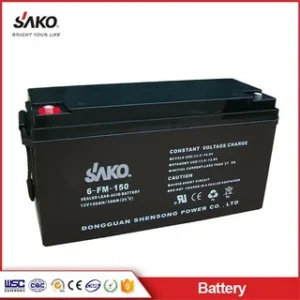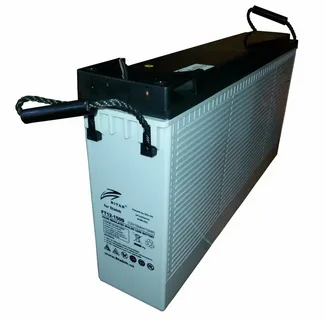In the world of off-grid living, boon docking, and renewable energy, reliable power storage is the unsung hero that keeps the lights on and the wheels turning. Among the many battery options available, deep-cycle batteries have emerged as a popular choice for their ability to provide a steady flow of power over an extended period. At the forefront of this technology are deep cycle 150AH battery, which has become the gold standard for those who demand unwavering performance and flexibility. Whether you’re a seasoned RV enthusiast, a solar power fan, or simply a DIY enthusiast looking to power your next project, understanding the intricacies of 150AH deep-cycle batteries is crucial to unlocking your system’s full potential.
What are Deep-Cycle Batteries and How Do They Work?
Deep-cycle batteries are a type of lead-acid battery designed to provide a steady flow of energy over a prolonged period. Unlike traditional starter batteries, which are meant to deliver a short burst of power to start an engine, deep-cycle batteries are engineered to supply a consistent and reliable power stream to meet heavy-duty applications’ demands.
These batteries are built with thicker plates and more robust construction, allowing them to withstand the rigours of repeated deep discharging and recharging. When a deep-cycle battery is discharged, the sulfuric acid in the electrolyte solution reacts with the lead plates to release energy.
As the battery is recharged, the chemical reaction is reversed, replenishing the acid and restoring the plates to their original state. This cyclical process enables deep-cycle batteries to provide many charge and discharge cycles, making them an ideal choice for applications that require a reliable and consistent power source, such as off-grid solar systems, RVs, and marine vessels.
Benefits of 150ah Lithium Deep Cycle Battery
When harnessing the power of 150ah Lithium Deep Cycle Battery, 150AH batteries stand out from the rest. These batteries offer many benefits that make them an ideal choice for various applications, from off-grid energy systems to recreational vehicles. One of the most significant advantages of 150AH deep-cycle batteries is their ability to provide a steady flow of energy over an extended period.
This means they can handle heavy loads and deep discharges without compromising their performance, making them perfect for powering heavy-duty equipment and appliances. Additionally, 150AH batteries are designed to withstand the rigours of repeated charging and discharging, ensuring a long lifespan and reducing the need for frequent replacements.
Furthermore, their high capacity and deep-cycle capabilities make them an excellent choice for renewable energy systems, such as solar and wind power, allowing you to store excess energy generated during the day for use at night or during periods of low energy production. The benefits of 150AH deep-cycle batteries make them an essential component for anyone seeking reliable, efficient, and long-lasting power solutions.
Applications and Uses for 12v Deep Cycle Battery 150ah
12v Deep Cycle Battery 150ah is incredibly versatile and can be used in various applications, from off-grid renewable energy systems to recreational vehicles and more. Here are some of the most common uses for these powerful batteries:
Renewable Energy Systems
Deep-cycle 150AH batteries are:
- An essential component of off-grid renewable energy systems.
- Providing a reliable power source for homes.
- Cabins.
- Remote communities.
They can be used to store energy generated by solar panels, wind turbines, and other renewable sources, allowing you to harness the power of nature and reduce your reliance on the grid.
Recreational Vehicles and Boats
Whether you’re a camper, RV enthusiast, or boat owner, deep-cycle 150AH batteries are a great choice for powering your adventures. They provide a reliable energy source for lights, appliances, and other essential systems, allowing you to enjoy the great outdoors without worrying about running out of power.
Backup Power Systems
In the event of a power outage or natural disaster, deep-cycle 150AH batteries can provide a reliable backup power source for your home or business. They can power critical systems, such as lights, refrigeration, and communication equipment, keeping you safe and connected until the grid is restored.
Telecommunication Systems
Deep-cycle 150AH batteries are used in telecommunication systems to provide backup power for cell towers, data centres, and other critical communication infrastructure. This ensures that communication networks remain operational, even during a power outage.
Industrial and Commercial Applications
Finally, deep-cycle 150AH batteries are used in various industrial and commercial applications, including powering forklifts, pallet jacks, and other material handling equipment. They can also power backup systems, security systems, and other critical infrastructure in industrial and commercial settings.
 Installation and Maintenance Best Practices for Solar Battery 12v 150ah
Installation and Maintenance Best Practices for Solar Battery 12v 150ah
Proper installation and maintenance are crucial when it comes to getting the most out of your Solar Battery 12v 150ah. A well-installed and well-maintained battery can provide reliable power for years. In contrast, a poorly installed or neglected battery can lead to reduced performance, safety risks, and even premature failure.
Choose the Right Location
When selecting a location for your deep-cycle battery, consider temperature, ventilation, and accessibility. Avoid installing your battery in areas with extreme temperatures, high humidity, or exposure to direct sunlight. Instead, opt for a cool, dry location with good air circulation to ensure optimal performance and longevity.
Connect with Care
Proper connections are essential to ensure safe and efficient operation of your deep-cycle battery. Make sure to connect the positive and negative terminals correctly, and use the recommended cable sizes and connectors to prevent overheating and electrical shock.
Monitor and Maintain
Regular monitoring and maintenance are critical to extending the life of your deep-cycle battery. Check your battery’s state of charge, voltage, and electrolyte levels regularly, and perform routine maintenance tasks such as cleaning the terminals and checking the electrolyte levels.
Avoid Overcharging and Deep Discharging
Overcharging and deep discharging can significantly reduce the lifespan of your deep-cycle battery. Avoid overcharging by using a charger with a built-in voltage regulator, and prevent deep discharging by keeping your battery above 50% state of charge whenever possible.
Store Safely
When storing your deep-cycle battery, follow proper storage procedures to prevent damage and ensure safety. Keep your battery in a cool, dry location, away from flammable materials, and disconnect the terminals to prevent accidental short circuits.
Troubleshooting and Common Issues with 150AH Deep-Cycle Batteries
When it comes to harnessing the power of 150AH deep-cycle batteries, it’s essential to be prepared for any unexpected hiccups that may arise. Although these batteries are designed to provide reliable and consistent performance, occasional issues can still occur. In this section, we’ll delve into the most common problems that may arise and provide expert guidance on troubleshooting and resolving them.
Sudden Loss of Power
Imagine being in the middle of a critical project, only to have your 150AH deep-cycle battery suddenly lose power. Don’t panic! This could be due to various factors, including a faulty battery management system, corrosion on the terminals, or even a simple loose connection. To resolve this issue, thoroughly inspect the battery and its connections, ensuring all terminals are clean and secure.
Inconsistent Charging
If your 150AH deep-cycle battery is not charging consistently, it may be a sign of a faulty charger or a malfunctioning battery management system. To troubleshoot this issue, try switching to a different charger or checking the battery’s charging settings to ensure they are properly configured.
Swollen or Bloated Batteries
A swollen or bloated 150AH deep-cycle battery can indicate overheating, overcharging, or a manufacturing defect. If you notice your battery is swollen, unplug it immediately and avoid using it until it has been properly inspected and repaired by a professional.
Voltage Imbalance
Voltage imbalance can occur when the individual cells within the 150AH deep-cycle battery are not properly balanced. This can lead to reduced performance and even damage to the battery. To resolve this issue, use a battery balancer or consult a professional.
Age-Related Decline
Like all batteries, 150AH deep-cycle batteries will eventually decline in performance over time. If your battery is approaching the end of its lifespan, you may notice a decrease in its capacity to hold a charge. In this case, it may be time to consider replacing the battery with a new one.
Future of 12v 150ah Lithium Ion Battery Technology
As we look to the future of 12v 150ah Lithium Ion Battery technology, it’s clear that the industry is on the cusp of a revolution. With the increasing demand for renewable energy sources and the growing need for reliable, long-lasting power storage, innovators are working tirelessly to push the boundaries of what’s possible.
Materials science, nanotechnology, and advanced manufacturing techniques are expected to significantly improve energy density, lifespan, and charging speeds. We can expect to see the development of more efficient and sustainable battery chemistries, such as lithium-ceramic and solid-state batteries, which will further reduce the environmental impact of deep-cycle batteries.
Moreover, integrating artificial intelligence and IoT technology will likely optimize battery performance, predict maintenance needs, and enable real-time monitoring. As the industry evolves, we can anticipate even more powerful, efficient, and cost-effective deep-cycle batteries that will unlock new possibilities for off-grid energy systems, electric vehicles, and beyond.
Conclusion
In conclusion, deep cycle 150AH battery is a game-changer for anyone looking to power their off-grid adventures or backup systems. With their impressive capacity and ability to withstand deep discharging, these batteries offer a reliable and efficient energy source. By understanding the ins and outs of deep-cycle 150AH batteries, including their benefits, applications, and maintenance requirements, you can unlock their full potential and enjoy the freedom and independence of having a reliable power source. Whether you’re a seasoned off-grid enthusiast or just starting, this comprehensive guide has given you the knowledge and confidence to take your power needs to the next level.
FAQ’S
As you delve into the world of deep-cycle 150AH batteries, you may have some questions. Here are some answers to common queries to help you make an informed decision:
Q: What is the lifespan of a deep cycle 150AH battery?
The lifespan of a 150AH deep-cycle battery can vary depending on several factors, including the quality of the battery, usage patterns, and maintenance. On average, a well-maintained 150AH deep-cycle battery can last 5-7 years, with some batteries lasting up to 10 years or more.
Q: Can I use a 150AH deep-cycle battery for my RV or marine application?
Absolutely! 150AH deep-cycle batteries are ideal for RV and marine applications, where they can provide a reliable source of power for extended periods. Their deep-cycle capabilities make them well-suited for handling the heavy demands of these applications.
Q: How do I properly charge and maintain a 150AH deep-cycle battery?
To get the most out of your 150AH deep-cycle battery, following a proper charging and maintenance routine is essential. This includes charging the battery correctly, monitoring its state of charge, and performing regular maintenance tasks such as checking the electrolyte levels and cleaning the terminals. Following these best practices ensures your battery remains in good condition and provides optimal performance.
| Other Good Articles to Read |
| blogs rain |
| cme blogspot |
| Garcias Blogs |
| Yyc Blogs |
| Guiade Blogs |
| Blogs-Hunt |
| Impact-Blog |
| Smarty Blogs |
| Ed Blog |
| Mo Blogs |
| Blogs Em |
| blogs t |
| Related Business Listings |
| Contact Directory |
| Local Business Profiles |
